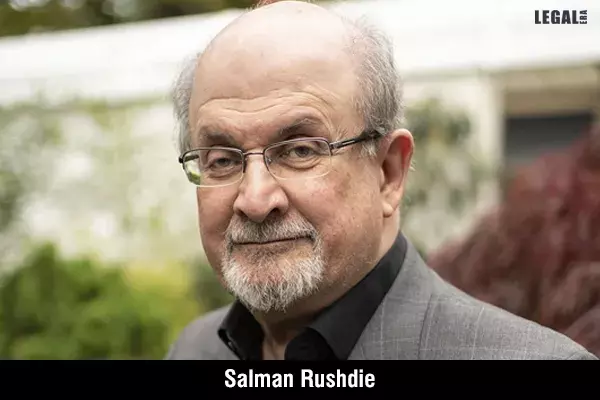Delhi High Court Reserves Judgment in Salman Rushide’s Property Dispute
The oldest case in the history of the Delhi High Court continues to unfold in the midst of a remarkable and prolonged legal;

Delhi High Court Reserves Judgment in Salman Rushide’s Property Dispute
The oldest case in the history of the Delhi High Court continues to unfold in the midst of a remarkable and prolonged legal saga that has captured the nation's attention, leaving both parties and the public in suspense as the case continues to unfold.
The dispute involves the prominent property adjacent to the Delhi Chief Minister's residence owned by the late Lt. Anish Ahmed, father of renowned author Salman Rushdie, has become a symbol of the complexities and challenges within the Indian judicial system that are associated with it.
The case dates back to 1970 when Lt. Bhiku Ram Jain, a former Congress MP, entered into an agreement to sell the sprawling property, measuring 5373 square yards at 4, Flagstaff Road, Civil Lines, Delhi, to Lt. Anish Ahmed for a meagre sum of Rs. 3,75,000/-.
However, the parties soon found themselves embroiled in disputes, leading Lt. Bhiku Ram Jain to file a Civil Suit in 1977, seeking the specific performance of the 1970 agreement.
A legal battle ensued between Rushdie’s family and that of Congressman Bhiku Ram Jain for almost 50 years after a deal to sell the house fell through.
On 5th October, 1983, the Delhi High passed its verdict in favor of Lt. Bhiku Ram Jain, decreeing the specific performance of the agreement. However, Lt. Anish Ahmed, aggrieved, filed an appeal before the Division Bench of the High Court in 1984.
Unfortunately, Lt. Anish Ahmed passed away, and his daughter, Mrs. Sameen Rushdie, succeeded him in contesting the appeal.
Finally, on October 31, 2011, the Division Bench of the High Court of Delhi reversed the 1983 judgement, thereby cancelling the specific performance in favor of Lt. Bhiku Ram Jain.
Ultimately, the matter reached the Supreme Court, when the legal representatives of Lt. Bhiku Ram Jain filed a Special Leave Petition challenging the 2011 judgement.
In 2012, the Supreme Court directed the Rushdie family to hand-over the house to the Jains for the market price as on date of the order. The decision to determine the market value of the property was, however, left on the Delhi High Court.
Previously, on 24th December, 2019, Justice Rajiv Sahai Endlaw had estimated the market price of Rushdie’s ancestral house at Rs. 130 crores. The Court had further stipulated that if any prospective buyer were unable to purchase the property at Rs. 130 crores, then the Jain Family would need to pay circle rate of Rs. 75 crores and failure to pay Rs. 75 crores by Jain would absolve the defendants, the Rushdie family, of their obligations under the 1970 agreement.
Aggrieved by the price fixed by the Delhi High Court’s 2019 judgment, Bhikhu Ram Jain’s son Narender Jain moved to the Court asserting that the order is ‘non-est’, bad in law and passed in blatant transgression of the directions passed by the Supreme Court and untenable on facts and in law.”
The litigation continued for three more years, during which several judges recused themselves from the case due to alleged political clout associated with the Jain families.
Finally, the matter has been brought before the esteemed Division Bench of Justices Bakhru and Mahajan, who have reserved their judgement.
It certainly would be interesting to observe as to whether the Division Bench of the High Court of Delhi will ultimately decide the value of the property and bring an end to this nearly half-century old legal dispute or will the case endure another decade of legal proceedings and generate further rounds of litigation.

